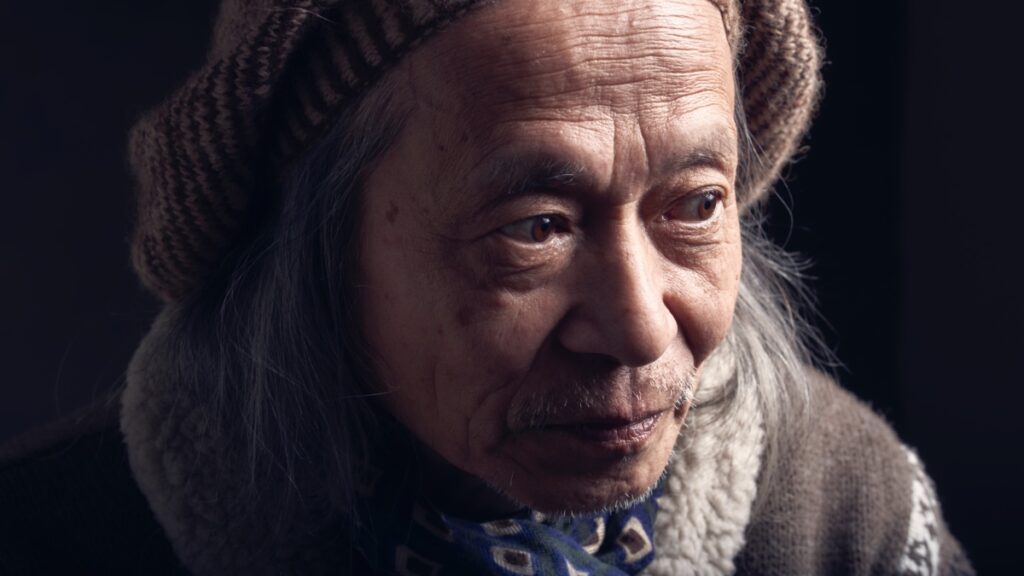Damo Suzuki, the pioneering vocalist who served as the lead singer of Can from 1970 through 1973, has died. He was 74 years old.
Best remembered for helming the mic for Can through some of their most popular releases — including 1971’s Tago Mago, 1972’s Ege Bamyası, and 1973’s Future Days — Suzuki had an innovative and inimitable approach to singing, often improvising parts sung in a variety of languages (a blend he referred to as “the language of the Stone Age”).
“It is with great sadness that we have to announce the passing of our wonderful friend Damo Suzuki, yesterday, Friday 9th February 2024,” a statement posted by Can on Instagram read. “His boundless creative energy has touched so many over the whole world, not just with Can, but also with his all continent spanning Network Tour. Damo’s kind soul and cheeky smile will be forever missed.”
Born on January 16th, 1950, in Kobe, Japan, Suzuki began his musical life at age eight, when he was given a flute. In the late ‘60s, he left Japan to travel the world, which led him to Europe, where he went from country to country, using his free time to deliver improvisational performances as a busker.
Eventually, in the early ‘70s while busking in Munich, Germany, Can’s Holger Czukay and Jaki Liebezeit saw one of Suzuki’s performances. Already looking for someone to replace the group’s previous singer, Malcolm Mooney, the two invited Suzuki to join the band, and he performed with them onstage later that evening.
From there, Suzuki became a full-time member of Can and began recording with them, ultimately resulting in the 1970 album, Soundtracks, which featured his vocals on tracks like “Don’t Turn the Light On, Leave Me Alone,” “Mother Sky,” and “Tango Whiskyman.”
After that, Suzuki fronted the band for their 1971 release, Tago Mago, which saw their embankment into more inventive, experimental territory, marked by his distinctive vocal delivery and the band’s rhythmic, jazz-influenced improvisations. Expanding on the trends of that album, the band followed-up with perhaps their most well-known album: 1972’s Ege Bamyası, which included songs like “Spoon,” “Vitamin C,” “I’m So Green,” and more.
In subsequent years, Ege Bamyası — and the entire Suzuki-era of Can’s output — have been viewed as an influential milestone in contemporary music history. The album has earned a spot on many roundups of the greatest albums of the ‘70s, and in some cases, greatest albums of all time. The songs have been sampled and covered by many, and the band Spoon even got their name from the song of the same title.
Suzuki stayed with Can for one more album, 1973’s Future Days, which saw the band expand into more ambient territory. Shortly after its arrival, Suzuki left the group, and began a 10-year hiatus from music.
After returning to performing in 1983, Suzuki continued to tour and collaborate with a wide web of artists, later referred to as “Damo Suzuki’s Network.” As a solo artist, he recorded many albums, including 2018’s Live at the Windmill Brixton with ‘Sound Carriers’ featuring Black Midi.
In 2014, Suzuki was diagnosed with colon cancer, and his battle with the disease was the subject of the 2022 documentary Energy.
The statement posted by Can relays that details for funeral arrangements are forthcoming, and ends with a thoughtful note, referring to the other members of the band who’ve passed. “[Suzuki] will be joining Michael, Jaki, and Holger for a fantastic jam!” the note said. “Lots of love to his family and children.” Read the full statement below.

